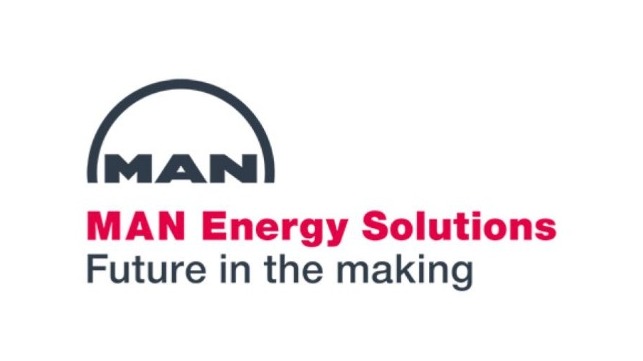Dual-Fuel ME-GI Engines to Power Newcastlemax Bulkers

ME-GI engines with negligible methane-slip set for massive Eastern Pacific Shipping (EPS) bulkcarriers; Hafnia reference points to market’s growing consideration for environment.
MAN Energy Solutions has received an order for 5 × 6G70ME-GI Mk 10.5 dual-fuel engines in connection with the construction of 5 × 210,000-dwt Newcastlemax bulkcarriers for EPS, the Singapore-based shipping company.
EPS has sealed an agreement to charter the five LNG dual-fuel Newcastlemaxes to Australian mining giant, BHP, for a period of five years. The vessels are scheduled for delivery during 2022 and will carry iron ore between Western Australia and China.
Speaking in his company’s own press statement, Cyril Ducau, CEO of EPS, commented: “This deal also sends a clear signal to the industry that progressive companies, like BHP, have viable options to lower their carbon footprint today.
When these vessels deliver in 2022, they will be the cleanest and the most efficient in the entire dry bulk shipping fleet and will be IMO 2030 compliant eight years ahead of schedule.”
Thomas S. Hansen, Head of Promotion and Customer Support, MAN Energy Solutions, said: “This order is notable in that these Newcastlemax bulkers are the first dual-fuel vessels of their size and show the capability of our engine technology. It also shows that the bulk segment – as well as the tramp trade – is keenly aware of the need to deal with greenhouse gases, and the inherent potential of alternative fuels. Our recent Hafnia order is another example of this trend.”
Hafnia
The Hafnia reference stems from an order Guangzhou Shipyard International Co., Ltd. (GSI) placed in September 2020 for 2 × 6G60ME-GI Mk 10.5 dual-fuel engines to power 2 × LR2 tankers for Hafnia, one of the world’s leading, oil-product tanker owners and operators. An option for a further two vessels exists in the contract.
French hydrocarbon major, Total, has already agreed to charter the vessels, marking its first encounter with ME-GI engines.
Hansen concluded: “It’s encouraging that major market players are giving such consideration to the environment. In this respect, the ME-GI engine’s negligible methane slip is a significant advantage. The ME-GI is mature technology that continues to accumulate references in multiple segments.”
MAN Energy Solutions states that its low-speed, dual-fuel references now exceed 333 units, with the ME-GI recording over 1.5 million operating hours on LNG alone.
The ME-GI engine – the new industrial standard
MAN Energy Solutions successful ME-GI (-Gas Injection) engine has set a new industrial standard for two-stroke propulsion engines aboard – among others –container vessels, bulk carriers, tankers, LNG carriers and car carriers. The ME-GI engine provides ship-owners and operators with a peerless solution within environmentally friendly and high-efficiency, two-stroke technology, without the greenhouse emissions such as methane slip that are characteristic of competing engines.
With the ME-GI engine, two-stroke development has taken a step further by combining the unique properties of multi-fuel combustion and the well-known reliability of MAN Energy Solutions ME-engine. The Diesel principle not only provides the ME-GI engine with high operational stability and efficiency, but also ensures 100% stable and reliable operation during load changes on gas with just normal additions of pilot-oil amounts. Furthermore, the ME-GI operational principles features a seamless change-over between gas operation and diesel operation The ME-GI engine is the most environmentally friendly, technology available within the two-stroke engine segment.
MAN Energy Solutions has also developed an ME-LGI (-Liquid Gas Injection) dual-fuel engine that expands the company’s dual-fuel portfolio, enabling the use of more sustainable fuels such as methanol and liquefied petroleum gas (LPG).
The Maritime Energy Transition
MAN Energy Solutions believes that it is time for what it terms a ‘Maritime Energy Transition’ to find clean, decarbonised solutions for seaborne trade and transportation. Essentially, it is the company’s call to action to reduce emissions and establish natural gases as the fuels of choice in global shipping. It strongly promotes a global ‘turn to gas’, driven by the IMO, and a common approach by the shipping industry and politics to invest in infrastructure development and retrofits.
The products and services herein described in this press release are not endorsed by The Maritime Executive.

